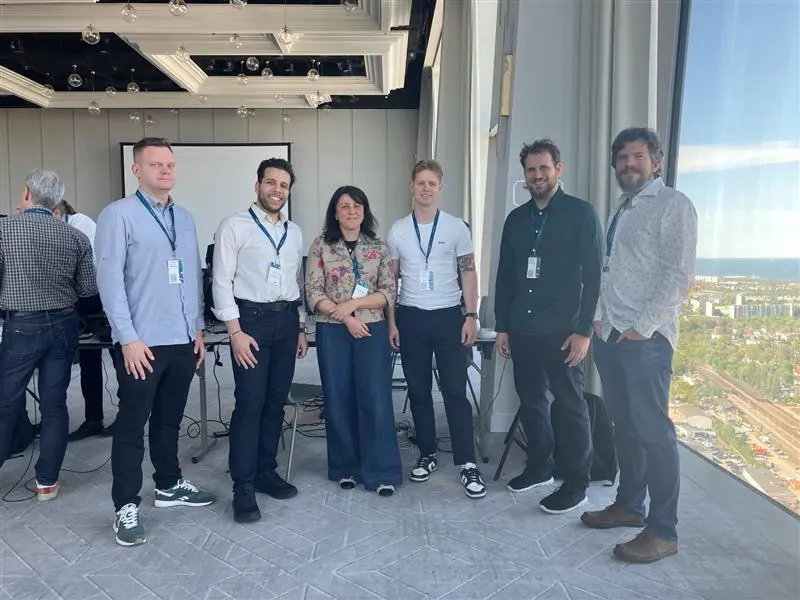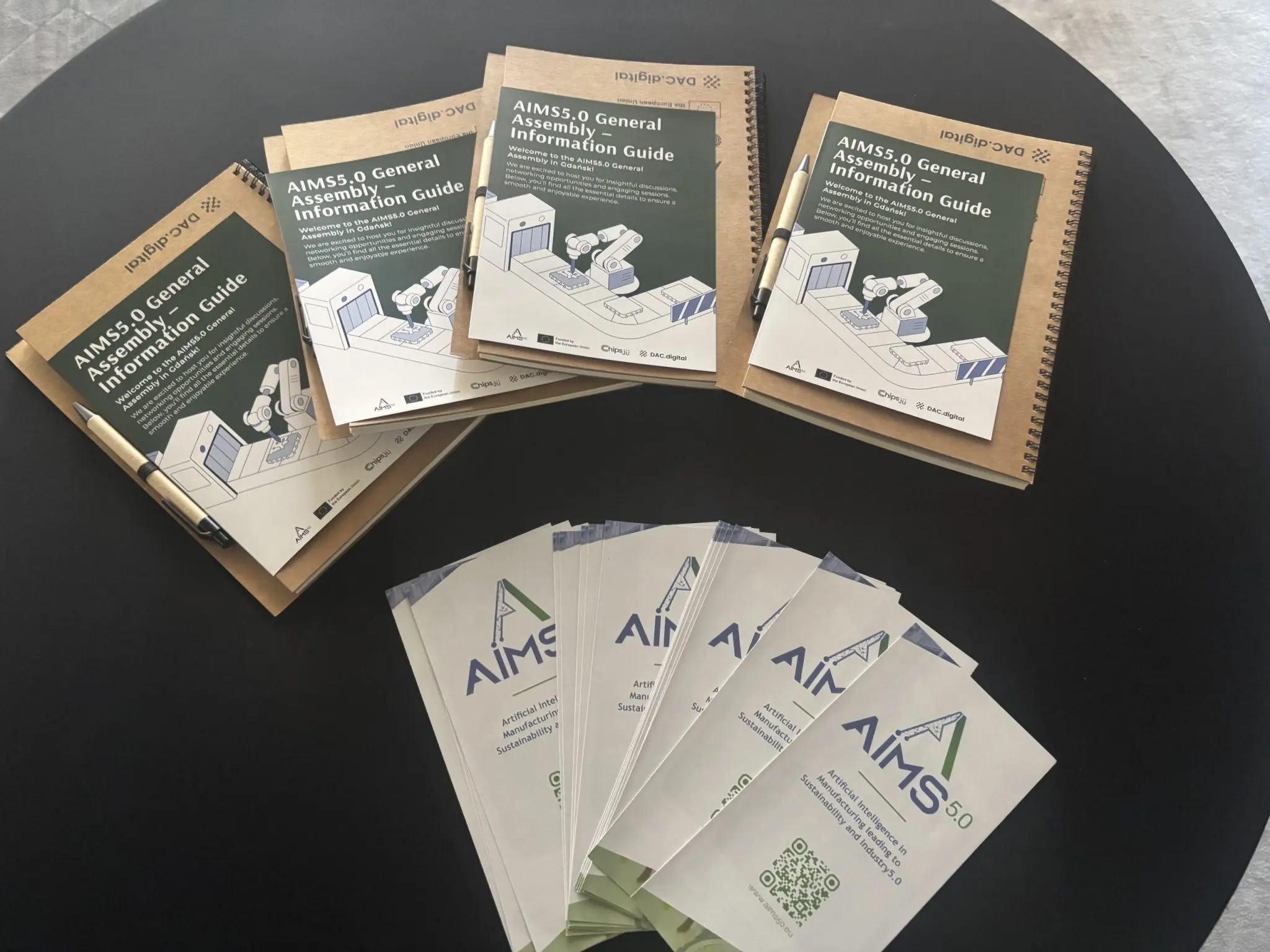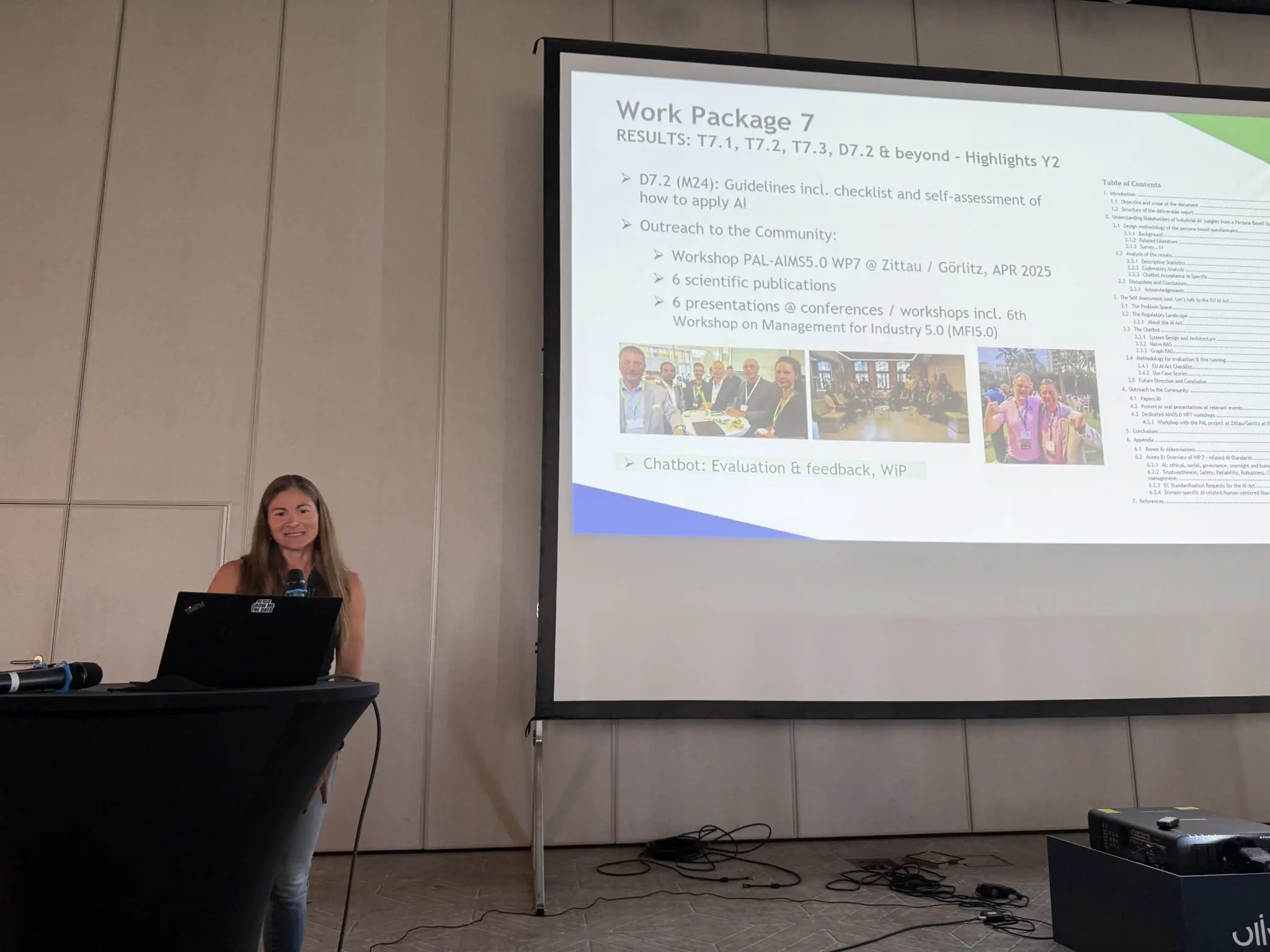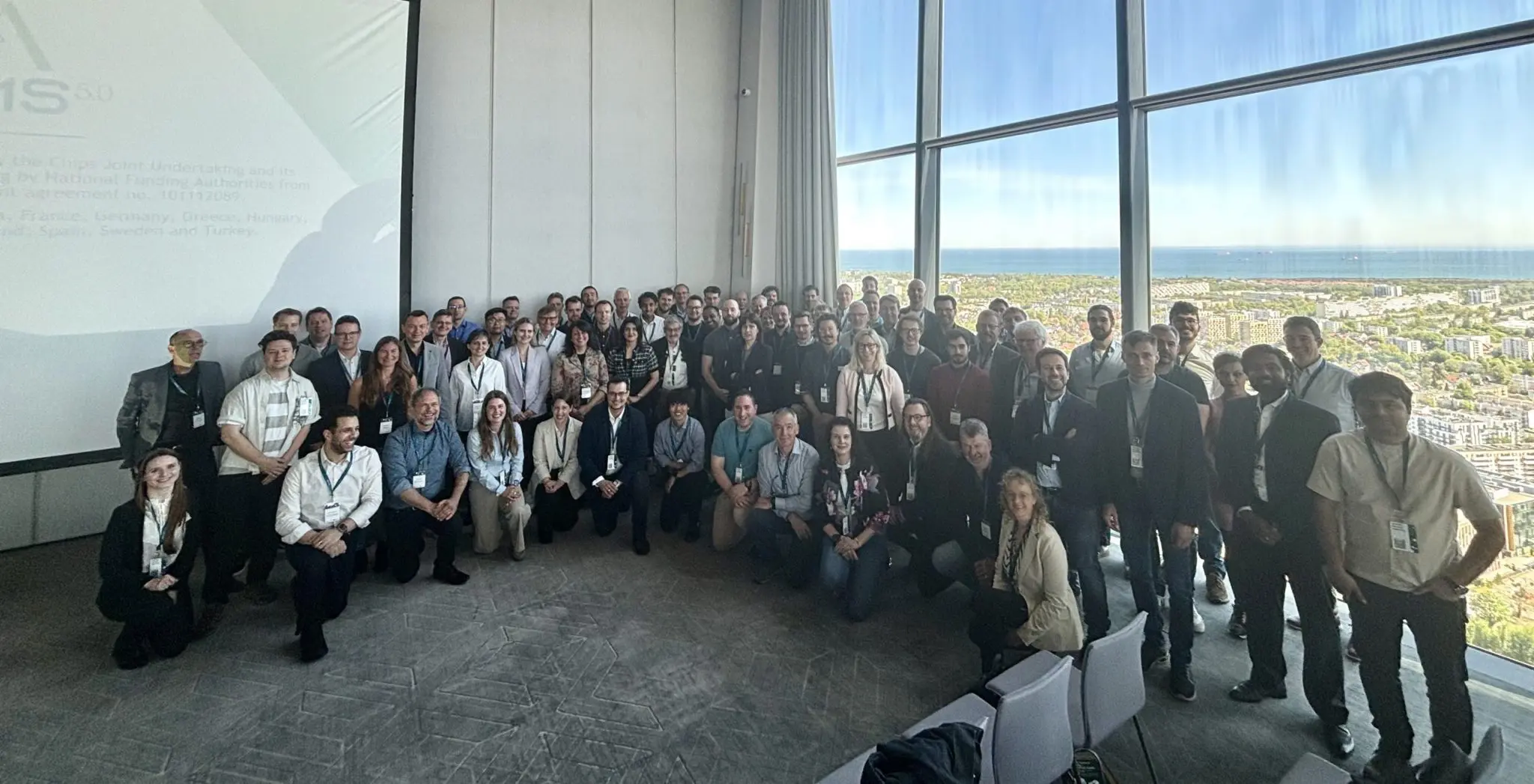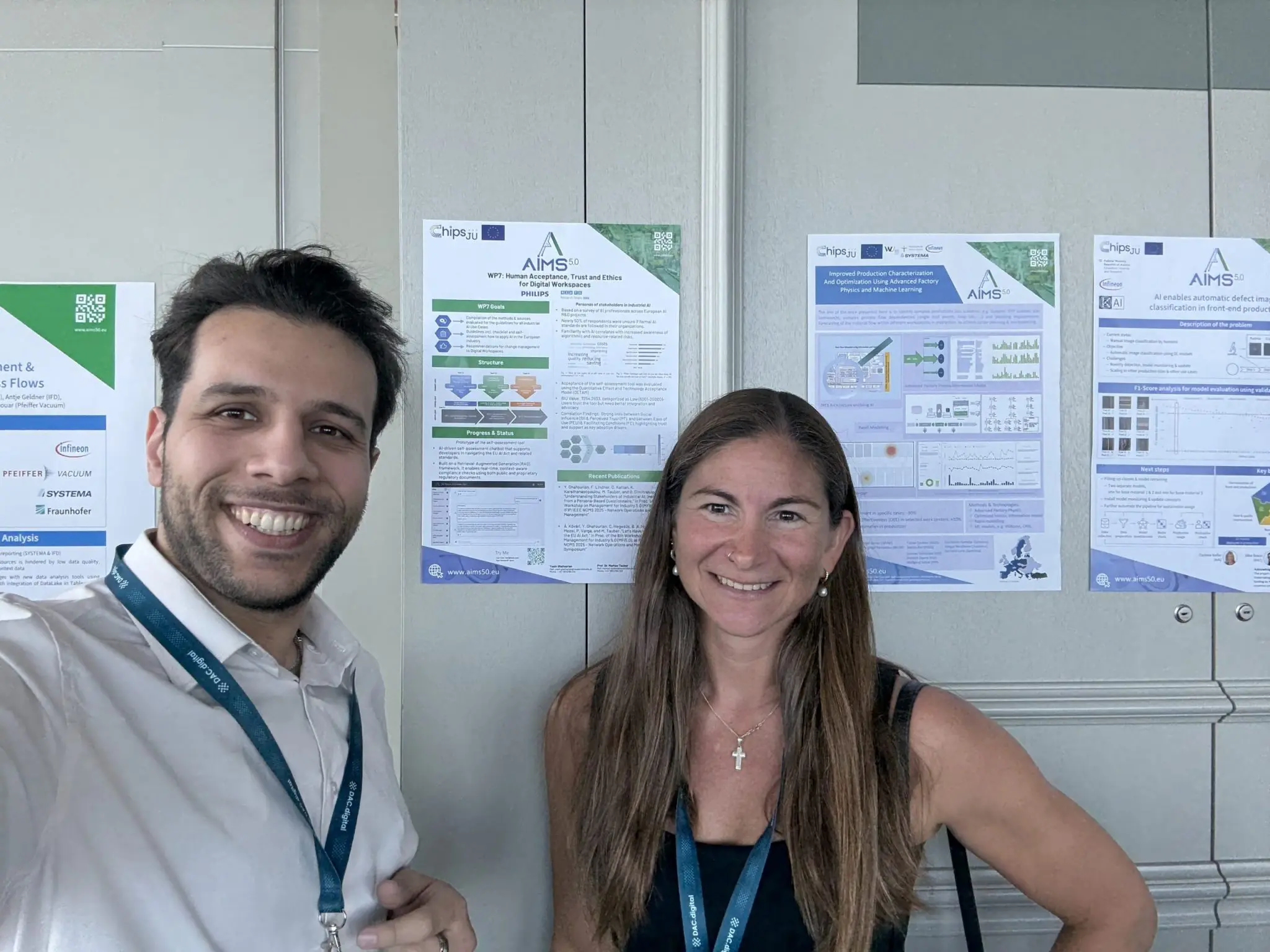The recent AIMS5.0 General Assembly brought together 53 project partners from across Europe for two days of strategic collaboration and intensive discussion.
At the end of May the over 50 partners of AIMS5.0 met in Gdansk. This General Assembly marked a step forward in advancing the consortium’s shared mission: to strengthen European digital sovereignty through AI-enabled, human-centric, and sustainable manufacturing.
Over the course of the two-day assembly, partners engaged in a dynamic agenda that balanced public sessions, plenary meetings, technical deep dives, and focused work package breakouts. Day one included open sessions and networking opportunities, setting the tone for collaborative progress. The second day was dedicated to more detailed discussions and extended plenary meetings, culminating in a series of strategic closing sessions that outlined the next phase of the project.
The notable progress that has been made so far across all nine work packages — ranging from AI-powered sensing technologies to circular and sustainable production systems — was presented and showcased during the GA. Discussions also emphasized alignment with the core principles of Industry 5.0—prioritizing human-centricity, resilience, and sustainability in the development of future manufacturing systems. Another critical focus was the advancement of the project’s open-access digital platform and ongoing efforts to contribute to European standardization in AI and manufacturing technologies.
WP7 showed their prototype of a self assesment-tool
For the studio SDIS researcher Yasin Ghafourian contributed to this important exchange. The RSA FG use case with ZELOSplant, TTTech, AIT and Politechnika Gdanska focusses on efficient and sustainable indoor food production and developing a flexible and decentralized framework. This framework integrates AI-driven automation, interconnected IoT-devices and a robust edge computing infrastructure.
Work package 7 has progressed steadily towards its objectives. A key milestone is the development of a questionnaire aimed at understanding AI usage in the workplace and profiling the personas of AI developers and users. Another main achievement is a self-assessment tool developed to empower AI practitioners with practical support for navigating complex ethical and regulatory landscapes, particularly the EU AI Act. This tool takes the form of a user-centric AI chatbot. This chatbot will provide personalized summaries of the most applicable regulations and guidelines based on specific AI use cases. The WP7-team also showed a live demo of this self assesment tool-prototype in Gdansk.


